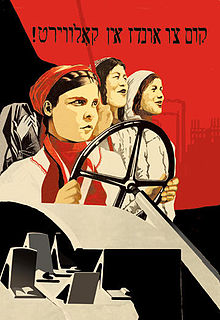 W
WBengalis, also rendered as Bangalee or the Bengali people, are an Indo-Aryan ethnolinguistic group originating from and culturally affiliated with the Bengal region of South Asia. The native population is divided between the independent country Bangladesh and the Indian states of West Bengal, Tripura and Assam's Barak Valley. Most of them speak Bengali, a language from the Indo-Aryan language family.
 W
WIn the philosophy of mind, collective intentionality characterizes the intentionality that occurs when two or more individuals undertake a task together. Examples include two individuals carrying a heavy table up a flight of stairs or dancing a tango.
 W
WCollective punishment is a punishment or sanction imposed on a group for acts allegedly perpetrated by a member of that group, which could be an ethnic or political group, or just the family, friends and neighbors of the perpetrator. Because individuals who are not responsible for the wrong acts are targeted, collective punishment is not compatible with the basic principle of individual responsibility. The punished group may often have no direct association with the perpetrator other than living in the same area and can not be assumed to,exercise control over the perpetrator's actions. Collective punishment is prohibited by treaty in both international and non-international armed conflicts, more specifically Common Article 3 of the Geneva Conventions and Additional Protocol II.
 W
WCommunitarianism is a philosophy that emphasizes the connection between the individual and the community. Its overriding philosophy is based upon the belief that a person's social identity and personality are largely molded by community relationships, with a smaller degree of development being placed on individualism. Although the community might be a family, communitarianism usually is understood, in the wider, philosophical sense, as a collection of interactions, among a community of people in a given place, or among a community who share an interest or who share a history. Communitarianism usually opposes extreme individualism and disagrees with extreme laissez-faire policies that neglect the stability of the overall community.
 W
WCorporatism is a collectivist political ideology which advocates the organization of society by corporate groups, such as agricultural, labour, military, business, scientific, or guild associations, on the basis of their common interests. The term is derived from the Latin corpus, or "human body". The hypothesis that society will reach a peak of harmonious functioning when each of its divisions efficiently performs its designated function, such as a body's organs individually contributing its general health and functionality, lies at the center of corporatist theory. Corporatism does not refer to a political system dominated by large business interests, even though the latter are commonly referred to as "corporations" in modern American legal and pop cultural parlance; instead, the correct term for this theoretical system would be corporatocracy. However, the Cambridge dictionary says that a corporate state is a country in which a large part of the economy is controlled by the government.
 W
WThe economy of the Soviet Union was based on state ownership of the means of production, collective farming, and industrial manufacturing. The highly centralized Soviet-type economic planning was managed by the administrative-command system. The Soviet economy was characterized by state control of investment, a dependence on natural resources, shortages, public ownership of industrial assets, macroeconomic stability, negligible unemployment and high job security.
 W
WCollective farming and communal farming are various types of "agricultural production in which multiple farmers run their holdings as a joint enterprise". There are two broad types of communal farms: agricultural cooperatives, in which member-owners jointly engage in farming activities as a collective, and state farms, which are owned and directly run by a centralized government. The process by which farmland is aggregated is called collectivization. In some countries, there have been both state-run and cooperative-run variants. For example, the Soviet Union had both kolkhozy and sovkhozy.
 W
WThe Humanist Party is a political party in Iceland founded on 25 June 1984. It has run candidates in the 1987 and 1999 parliamentary elections, but has never achieved representation. It is related to the International Humanist Party.
 W
WIn organization theory, mutual aid is a voluntary reciprocal exchange of resources and services for mutual benefit. Mutual aid projects are a form of political participation in which people take responsibility for caring for one another and changing political conditions.